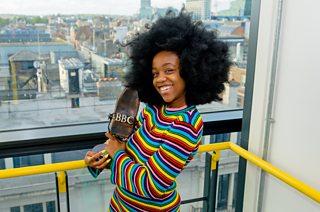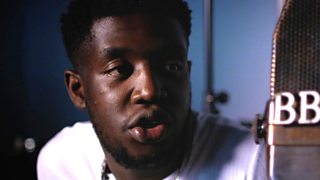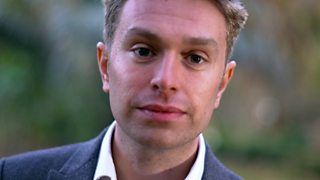Seven world-changing ideas from the new generation
Young guests from the Life Lessons podcast offer their wisdom across age, colour, political and gender barriers, in order to make society a better place to be. They've lived it, so now we can learn from it.
These tips, all based on their experience, can help us take steps to change the world.
Once you've been inspired about what's possible, have a read of Seven life-changing thoughts from the new generation so you can heed their wisdom and apply it to your life too.

1. Build a like-minded community and turn upset into action
Campaigner Amika George was shocked when she first discovered that women and girls were using toilet paper or socks because they couldn’t afford proper period products.

She wanted to turn that upset into action and found that when she spoke about the issue, people wanted to help.
“It’s really important to build a community of people who have the same goals as you,” she says.
"Together, you can make the change you want to see."
2. Take mental health talk beyond the hashtag
Mental health campaigns aren’t enough, says blogger, author and presenter Grace Victory, who was diagnosed with PTSD and an eating disorder.
A hashtag can be empowering, and a way to create a social community, but it doesn’t provide a solution to the issue.Grace Victory
“A hashtag can be empowering, and a way to create a social community, but it doesn’t provide a solution to the issue.”
Grace says despite awareness weeks there’s still not enough money and resources to support people who are unwell.
“As a society we need to make mental health support a lot more accessible and a lot less taboo.”
She believes we can all do this by working on our toxic behaviours and creating safe spaces to talk.
3. Let people learn from being wrong
“Our bodies are not products, our bodies are places for us to live in,” says creator of the viral #saggyboobsmatter tag, Chidera Eggerue.

She says the internet has become a dangerous place, where the damage of trolling and body shaming is already done by the time you've scrolled past or logged off.
But she also warns that "cancel culture" isn’t helping. It stops the larger conversation, she says.
If you "cancel" someone – disassociate from them completely because of one "wrong" thing they’ve done or said – “you’ve basically robbed them of the chance to learn and to grow,” she says.
4. We can all fight crime by believing in the future
“When you starve kids of a future, when you starve them of the opportunity to achieve their dreams and achieve their goals, they start to see life very, very short term,” says drummer Femi Koleoso.

As a youth volunteer, Femi says he's heartbroken when he sees stories of youth crime.
He believes the solution is in every one of us doing a little bit, helping kids make better decisions, based on the belief they have a bright future.
“Never ever underestimate the influence or impact you can have by giving your time,” Femi says.
5. No matter how big the problem, you can be part of the solution
At 13, David Saddington was trapped in flooding in Yorkshire and it changed his life. He’s now a climate scientist and consultant tackling one of the world’s biggest problems.

“Previous generations have ignored concerns about climate change and we are now facing the consequences,” David says.
He believes stripping carbon emissions from our economy and our lives is THE challenge and says there are simple things we can all do. “It’s important to start action on a personal level,” he urges.
He advocates not just cutting out single use plastic and eating seasonal, local foods, but also stopping before we shop – choosing quality over quantity and not buying things we don’t need.
6. Beware of "diversity"
Diversity is a huge word in the TV and film industry now, says actress Banita Sandhu.

“For me, the word diversity essentially sounds like a luxury, it sounds ornamental, whereas representation is fundamental,” she says.
She believes that until we get away from tokenism and stereotyped roles, we risk feeding racism and hate crime.
Storytelling is important because it shapes the way we perceive ourselves, says Banita.
“Representation for me is being able to see yourself on screen, being able to find a sense of belonging.”
7. If we want political change, we’ve got to let young people in
We should lower the voting age to 16, argues model and politics student Shahira Yusuf.
Young people aged 16 and 17 can become parents, have jobs and join the armed forces, “but they are not given a political voice or a choice,” says Shahira.
“The average age of a member of parliament in this country is 50,” she points out, and says voting turnout has grown in countries like Austria and Scotland where 16- and 17-year-olds can vote.
It’s time we followed suit, Shahira says, to engage the next generation of leaders and creative thinkers.




